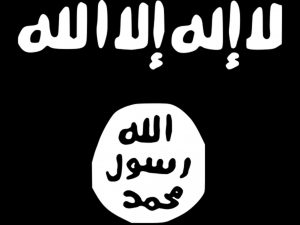What is ISIS
On November 13th, a series of surprise terrorist attacks plagued the streets of Paris and the immediate areas surrounding the beloved city. On November 14th, the terrorist organization, ISIS, took responsibility for the awful acts committed the previous day. However, this was not the first the world has heard of ISIS.

The terrorist organization has been attacking the countries of Syria and Iraq ever since the Iraq War, trying to conquer enough land from the two countries to become a legitimate caliphate, or Islamic state. It is the only terrorist organization that has been as close as it currently is to successfully forming a caliphate.
Although CBS News argued in 2014 that ISIS originated in Camp Bucca, the largest U.S. prison in Iraq, sources since then have argued that the problem had roots in a much larger spectrum than simply one camp. According to The Week, ISIS began when the U.S. decided to clear the Iraqi government of all former Saddam Hussein supporters, following their invasion in 2003. These supporters, commonly referred to as Baathists due to their approval of Saddam’s expansion during his reign, were left vulnerable and angry without jobs. As a result, Al Qaeda, the terrorist group guilty of the 9/11 attacks, thought Iraq would be the perfect place to set up a new branch of its organization: AQI, or Al Qaeda in Iraq.
AQI, the predecessor to ISIS, continued to gain power as the Iraq War with the United States continued. It was U.S. persecution of AQI that prompted the members of the group to often travel to Syria during those years, forming essential allies and sowing the seeds of radicalism in their wake. Their influence in Syria came to fruition when the Syrian dictator Bashar al-Assad began killing his own people in response to a series of peaceful protests, inspiring fear, anger, mistrust, and, most importantly, vulnerability in Syria. Just as Al Qaeda did in Iraq years before, AQI took advantage of these sentiments, moving into Syria and forming the Islamic State of Iraq and Syria, otherwise known as ISIS.
ISIS is merely one of the many names this jihadist group has acquired. Most notably, other titles include ISIL and Daesh. However, according to the Los Angeles Times, despite the different forms the name takes on, they all mean essentially the same thing. Daesh, perhaps the least frequently used title in the U.S., is the Arabic equivalent to the aforementioned names, directly translating to “Islamic State in Iraq and the Sham.” Most French people prefer to use this name to describe ISIS, but it is limited primarily to people that speak the Arabic language.
Up until then, the terrorist group currently labeled ISIS had been merely a branch of Al Qaeda. However, following its aggressive expansion into Syria, the group has adopted a new name and, with it, a completely separate identity from that of its creator’s. Make no mistake; Al Qaeda is no ally of ISIS. In fact, it is becoming abundantly clear that no group, Islamic or otherwise, is a friend of ISIS.
According to an exclusive CNN interview of a former ISIS fighter, the “principal goal of the Islamic State that they tell their new members is to establish an Islamic state that will encompass the Arab world.” After ISIS accomplishes that, they aim to “go to other countries,” killing the “infidels” they deem fit. It is difficult to make allies when the ultimate goal is to conquer and, if their ideals are different, oppress or even kill the opposition. It is obvious that Western countries would never meet ISIS’ standards, but it is, to say the least, extreme that not even other Sunni Muslims are safe from the terrorist organization’s wrath.
Due to sectarian disputes, according to the United Nation’s “Report on the Protection of Civilians in Armed Conflict in Iraq,” ISIS was the “primary actor” in 9,347 civilian deaths in Iraq. ISIS is notorious for unflinchingly killing fellow Muslims, Sunni and Shiite alike, as a result of their paranoia of spies, traitors, and general insurgencies.








